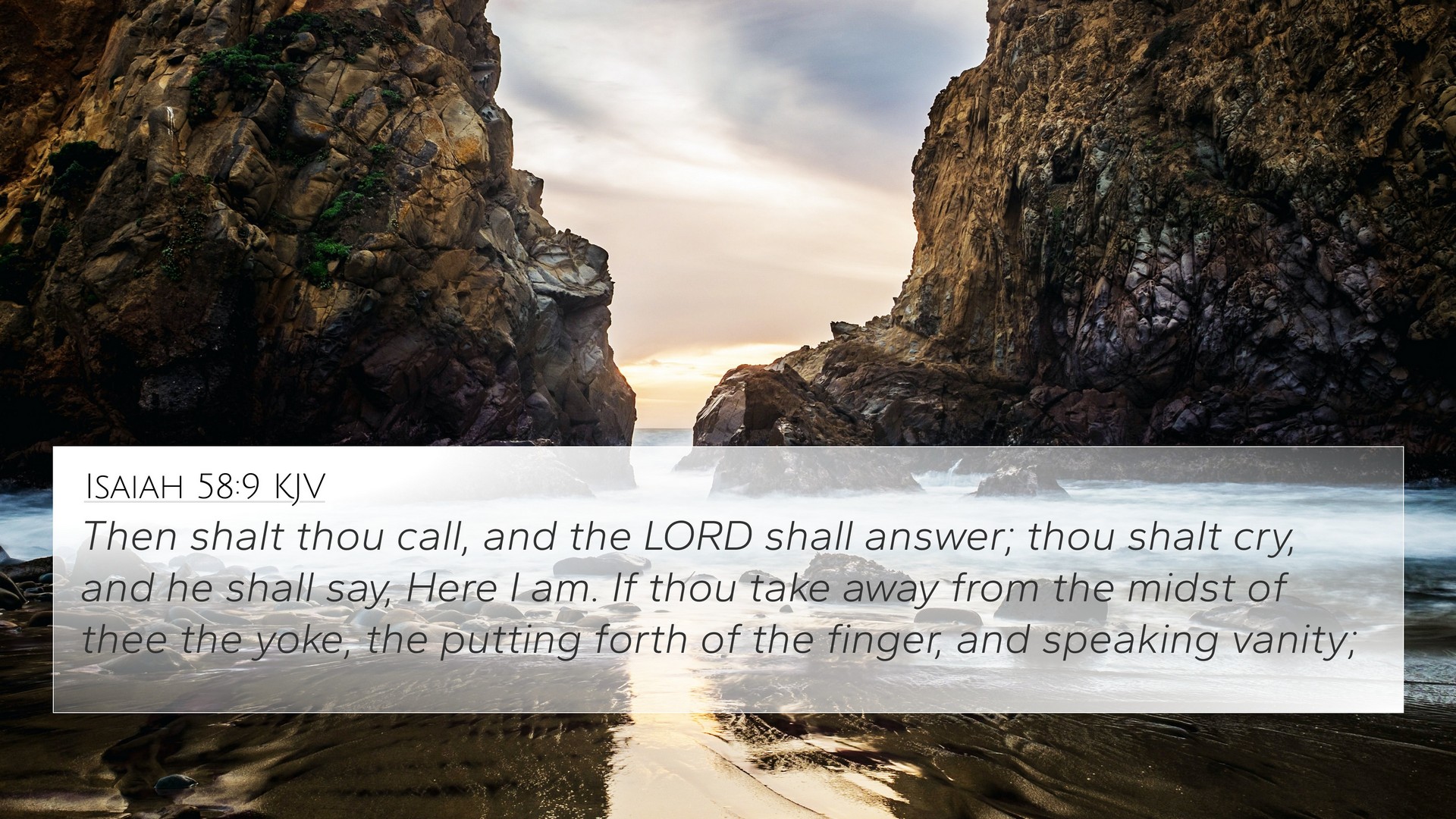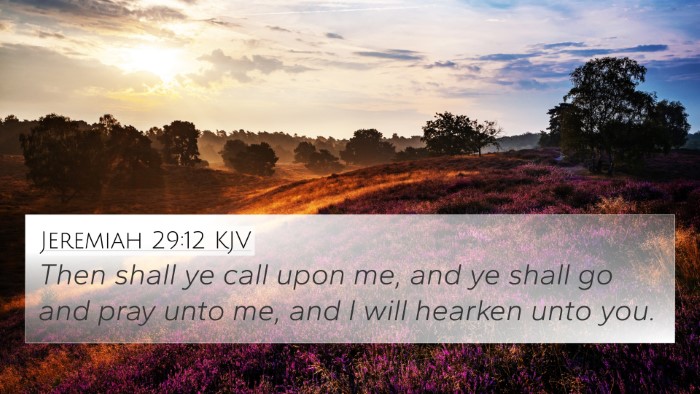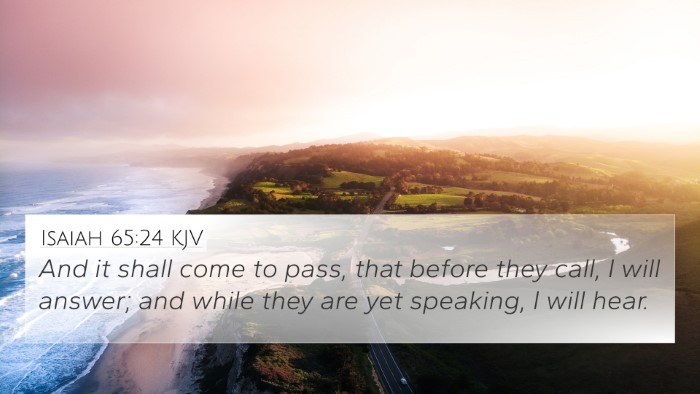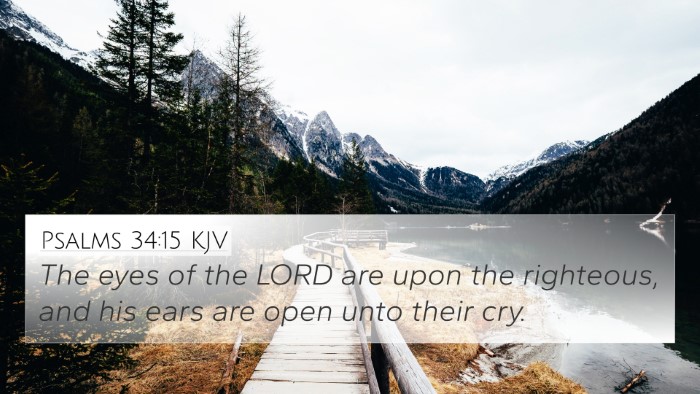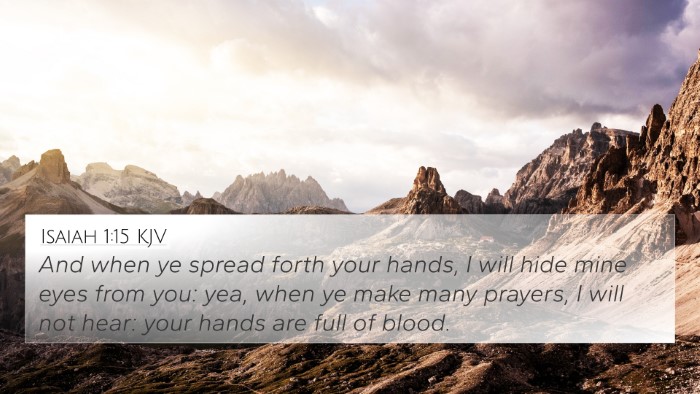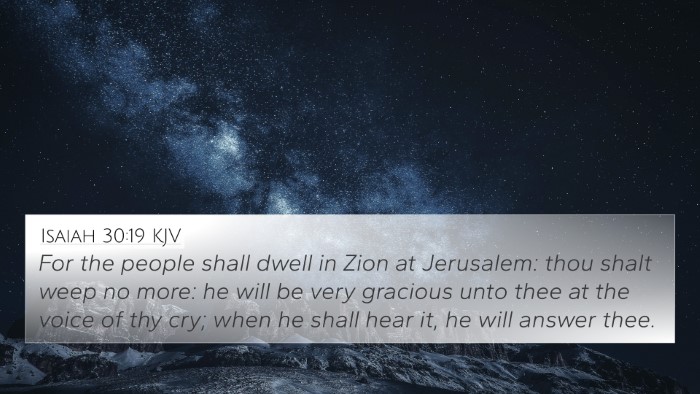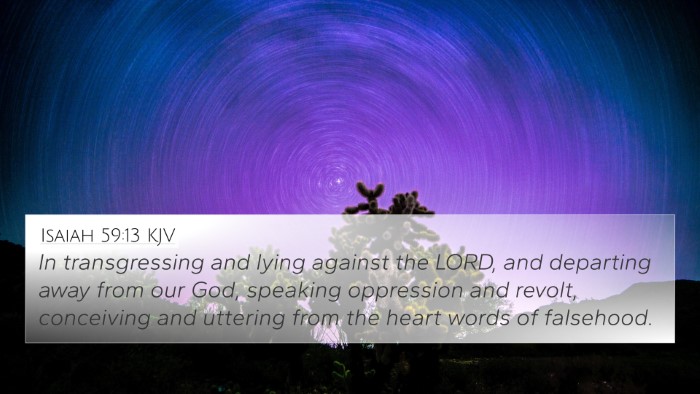Understanding Isaiah 58:9
The verse Isaiah 58:9 states:
"Then you shall call, and the LORD will answer; you shall cry, and He will say, 'Here I am.'" (Isaiah 58:9, NKJV)
This verse emphasizes the importance of sincere prayer and the assurance that God is responsive to His people's cries for help. Let’s delve deeper into its meaning by combining insights from notable public domain commentaries.
Commentary Insights
Matthew Henry's Commentary
According to Henry, this scripture highlights God's readiness to respond to those who truly seek Him. The call to the Lord signifies a relationship grounded in righteousness and true worship. Henry notes that the previous verses discuss the proper manner of fasting and humility before God, emphasizing that genuine piety results in divine attention.
Albert Barnes' Commentary
Barnes emphasizes that God's promise to "answer" signifies His willingness to assist His people in times of distress. He draws attention to the conditional nature of this promise—faithful, righteous living opens the channels through which divine help flows. Barnes also connects this verse with the themes of repentance and restoration seen throughout the prophetic writings.
Adam Clarke's Commentary
Clarke interprets this verse within the framework of social justice, noting that true fasting and piety involve caring for the oppressed. He sees the promise of God's immediate response as contingent upon how believers treat others, tying it to broader biblical themes of mercy and love. Clarke also emphasizes the urgency in our prayers, indicative of our need for God’s intervention.
Key Themes and Connections
In exploring Isaiah 58:9, we can identify several theological themes and connections with other scriptures:
- The Call to God: This verse illustrates the responsive character of God (Psalm 34:17).
- God's Assurance: The promise that He is "Here I am" (Jeremiah 33:3).
- Covenantal Relationship: The connection between true piety and social justice (Micah 6:8).
- Prayer and God’s Response: Reinforced in Matthew 7:7, which encourages asking, seeking, and knocking.
- The Heart of Worship: A theme prevalent in James 1:27 about pure religion involving care for others.
- Seeking the Lord: Found in 2 Chronicles 7:14 about humility and seeking God’s face.
- Responses to Distress: Comparison with Matthew 11:28, where Jesus invites the weary to come to Him.
Inter-Biblical Dialogues
Isaiah 58:9 serves as a hub connecting various biblical themes and narratives. Below are some significant cross-references that enhance its meaning:
- Psalm 91:15: "He shall call upon Me, and I will answer him."
- Isaiah 65:24: "It shall come to pass that before they call, I will answer."
- Matthew 6:6: The importance of private prayer and the assurance of reward.
- John 14:13-14: Asking in Jesus' name assures an answer from God.
- Philippians 4:6-7: Encouragement to bring all concerns to God in prayer.
- 1 Peter 3:12: Affirmation that the Lord's eyes are on the righteous.
- Hebrews 4:16: Access to God's throne of grace in times of need.
Cross-Referencing Themes in Isaiah 58:9
This verse touches upon several essential components necessary for effective prayer and worship:
- Righteousness: God emphasizes that our prayers are most effective when offered with a heart turned away from sin.
- Mercy and Justice: Linking back to the responsibilities of believers towards the marginalized.
- Divine Response: Reassuring believers of God’s attentiveness when we call out to Him honestly.
Engaging in Cross-Referencing Bible Study
For those keen on exploring deeper meanings and connections between Bible verses, utilizing tools for Bible cross-referencing can enhance your study:
- Bible Concordance: A helpful tool to look up verses based on keywords found in Isaiah 58:9.
- Bible Cross-Reference Guide: Utilizing these guides can help in identifying scriptures that discuss similar themes.
- Online Bible Studies: Finding platforms that allow for comparative Bible verse analysis can deepen understanding.
Conclusion
Isaiah 58:9 serves as a profound reminder of God’s willingness to respond to those who call upon Him with sincere hearts. The interconnectedness of this verse with others throughout the Bible illustrates a consistent theme of divine responsiveness, requiring righteousness, humility, and social justice. By engaging with tools for cross-referencing and thematic exploration, readers can navigate the rich tapestry of scripture to gain a comprehensive understanding of biblical teachings.
